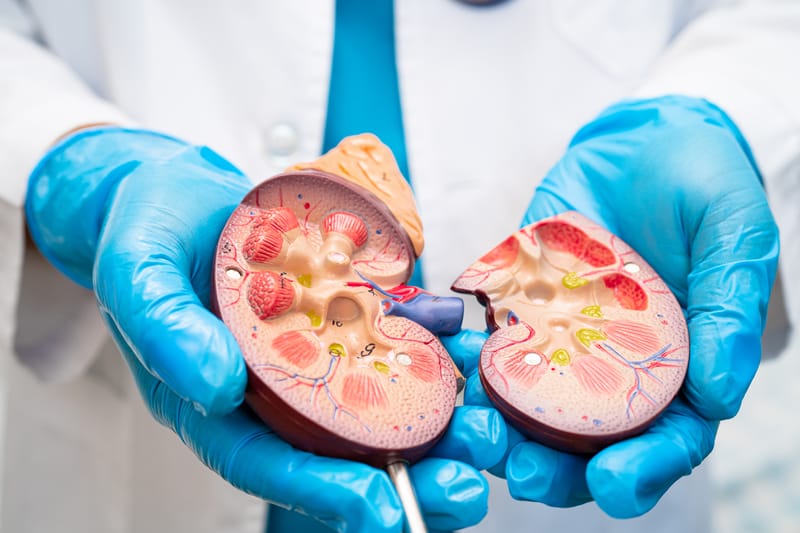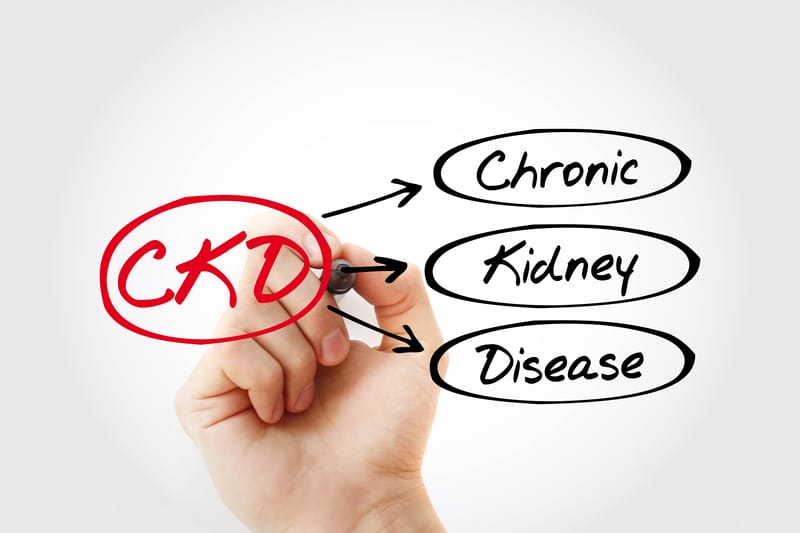Risks of the Ketogenic Diet in Chronic Kidney Disease (CKD)
The ketogenic diet, often referred to as the keto diet, has gained popularity for its potential benefits in weight loss and managing certain medical conditions. However, when it comes to individuals with Chronic Kidney Disease (CKD), the keto diet poses significant risks. This article will explore these risks in detail, providing a comprehensive understanding of why the keto diet may not be suitable for people with CKD.
Understanding Chronic Kidney Disease (CKD)
Chronic Kidney Disease is a condition characterized by a gradual loss of kidney function over time. The kidneys play a crucial role in filtering waste and excess fluids from the blood, which are then excreted in the urine. CKD can progress to end-stage kidney disease (ESKD), where dialysis or a kidney transplant becomes necessary to sustain life.

Common causes of CKD include diabetes, high blood pressure, and glomerulonephritis (inflammation of the kidney’s filtering units). CKD is classified into five stages based on the Glomerular Filtration Rate (GFR), with Stage 5 being the most severe, often referred to as kidney failure.
Overview of the Ketogenic Diet
The ketogenic diet is a high-fat, low-carbohydrate diet that forces the body into a state of ketosis. In ketosis, the body primarily burns fat for energy instead of carbohydrates. The diet typically consists of 70-80% fat, 20-25% protein, and 5-10% carbohydrates. This macronutrient distribution leads to the production of ketones, which are used as an alternative energy source.
While the keto diet has shown benefits in weight loss, blood sugar control, and even in treating epilepsy, it also has its downsides, especially for individuals with CKD.
Risks of the Ketogenic Diet for People with CKD

- Increased Protein Load The keto diet is often higher in protein compared to other diets, although it primarily emphasizes fat. However, for individuals with CKD, a high-protein diet can be harmful. The kidneys are responsible for filtering waste products from protein metabolism. In CKD, the kidneys are already compromised, and an increased protein load can exacerbate kidney damage by increasing the workload on the kidneys. Why It Matters: Over time, the accumulation of waste products from protein metabolism can lead to a further decline in kidney function, accelerating the progression of CKD.
- Electrolyte Imbalance The keto diet can lead to significant changes in electrolyte levels, including sodium, potassium, and magnesium. For individuals with CKD, maintaining a proper balance of these electrolytes is critical, as their kidneys may already struggle to regulate them effectively. Potassium Concerns: High potassium levels (hyperkalemia) are a common concern in CKD. Since the kidneys are responsible for excreting excess potassium, any further increase from dietary sources, such as certain keto-friendly foods like avocados and nuts, can be dangerous. Sodium and Magnesium: Sodium restriction is often recommended for CKD patients to control blood pressure and reduce fluid retention. The keto diet, however, may encourage the consumption of foods that are high in sodium, potentially leading to complications. Additionally, magnesium levels can be affected, leading to muscle cramps, weakness, and heart rhythm disturbances.
- Dehydration Risk The ketogenic diet has a diuretic effect, meaning it can cause the body to lose water rapidly, especially in the initial stages. This can lead to dehydration, a condition where the body lacks the necessary amount of fluids to function properly. CKD and Dehydration: For people with CKD, dehydration is particularly dangerous. The kidneys rely on adequate fluid levels to filter waste from the blood effectively. Dehydration can reduce kidney perfusion, leading to acute kidney injury (AKI) and further deterioration of kidney function.
- Acidosis The keto diet can lead to a condition known as ketoacidosis, where the blood becomes too acidic due to the high levels of ketones. While ketoacidosis is more commonly associated with uncontrolled diabetes, it can occur in individuals on a strict ketogenic diet, particularly if they have underlying kidney disease. Acidosis in CKD: CKD patients are already at risk of metabolic acidosis, a condition where the kidneys fail to excrete enough acid, leading to an acidic environment in the body. The additional acid load from a ketogenic diet can worsen this condition, leading to symptoms such as fatigue, nausea, and difficulty breathing.
- Nutrient Deficiencies The restrictive nature of the ketogenic diet can lead to nutrient deficiencies, including deficiencies in vitamins and minerals such as B vitamins, vitamin C, calcium, and magnesium. For individuals with CKD, who may already have dietary restrictions, these deficiencies can be particularly problematic. Why It Matters: Nutrient deficiencies can compromise overall health, weaken the immune system, and exacerbate existing conditions. For CKD patients, who may already be dealing with anemia, bone disorders, and other complications, these deficiencies can lead to a further decline in health.
- Worsening of Existing Kidney Damage CKD patients are at a higher risk of kidney damage progression, and the ketogenic diet may contribute to this. The high-fat content of the diet can lead to an increase in cholesterol levels, which is a risk factor for cardiovascular disease—a common complication in CKD. Additionally, the diet’s potential to cause dehydration, electrolyte imbalances, and acidosis can accelerate kidney damage. Long-Term Risks: Over time, these factors can contribute to a faster progression of CKD to end-stage renal disease (ESRD), necessitating dialysis or a kidney transplant.
Special Considerations for CKD Patients on the Keto Diet
- Close Monitoring by Healthcare Providers If a CKD patient is considering the ketogenic diet, it is crucial that they do so under the close supervision of a healthcare provider, particularly a nephrologist and a registered dietitian. Regular monitoring of kidney function, electrolytes, and acid-base balance is essential to prevent complications.
- Customized Dietary Plans A standard ketogenic diet may not be appropriate for someone with CKD. Instead, a customized dietary plan that takes into account the individual’s stage of CKD, protein needs, and electrolyte balance is necessary. This plan should ensure adequate nutrient intake while minimizing the risk of kidney damage.
- Alternatives to the Ketogenic Diet For individuals with CKD, alternative dietary approaches may be more appropriate. The DASH (Dietary Approaches to Stop Hypertension) diet, for example, is lower in protein and sodium, making it a safer option for kidney health. Similarly, a Mediterranean diet, which is rich in fruits, vegetables, and healthy fats, may offer health benefits without the risks associated with the keto diet.
Conclusion
The ketogenic diet, while popular for its potential health benefits, poses significant risks for individuals with Chronic Kidney Disease. From increased protein load and electrolyte imbalances to dehydration and acidosis, the potential dangers of the keto diet can outweigh the benefits for those with compromised kidney function. It is essential for CKD patients to consult with healthcare professionals before making any drastic dietary changes and to consider safer alternatives that support kidney health.
References
- National Kidney Foundation. (n.d.). Chronic Kidney Disease (CKD). Retrieved from https://www.kidney.org/atoz/content/about-chronic-kidney-disease
- Dashti, H. M., Mathew, T. C., Khadada, M., Al-Mousawi, M., Talib, H., Asfar, S. K., & Behbehani, A. (2004). Beneficial Effects of Ketogenic Diet in Obese Diabetic Subjects. Molecular and Cellular Biochemistry, 261(1-2), 85-90. doi:10.1023/b:mcbi.0000024234.22290.69
- Paoli, A., Rubini, A., Volek, J. S., & Grimaldi, K. A. (2013). Beyond weight loss: a review of the therapeutic uses of very-low-carbohydrate (ketogenic) diets. European Journal of Clinical Nutrition, 67(8), 789-796. doi:10.1038/ejcn.2013.116
- KDIGO. (2012). Clinical Practice Guideline for the Evaluation and Management of Chronic Kidney Disease. Kidney International Supplements, 3(1), 1-150. Retrieved from https://kdigo.org/guidelines/ckd-evaluation-and-management/
- Fine, E. J., & Feinman, R. D. (2004). Carbohydrate restriction in diabetes: an interview with Dr. Richard D. Feinman. Nutrition & Metabolism, 1(1), 9. doi:10.1186/1743-7075-1-9
- Bruci, A., Tuccinardi, D., Tozzi, R., Balena, A., Santucci, S., Frontani, R., … & Manfrini, S. (2020). Ketogenic Diet and Chronic Kidney Disease: Unmasking the Potential Dangers. Frontiers in Nutrition, 7, 629255. doi:10.3389/fnut.2020.629255
This article provides a detailed look at the risks associated with the ketogenic diet for individuals with CKD, emphasizing the importance of consulting healthcare professionals before making dietary changes.


